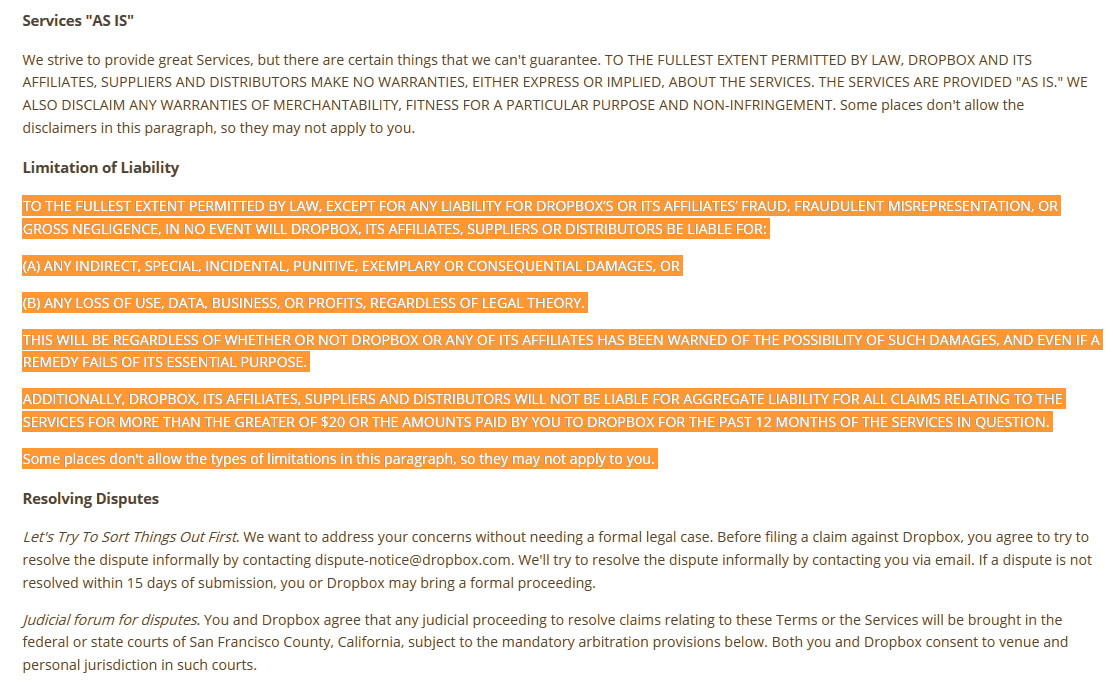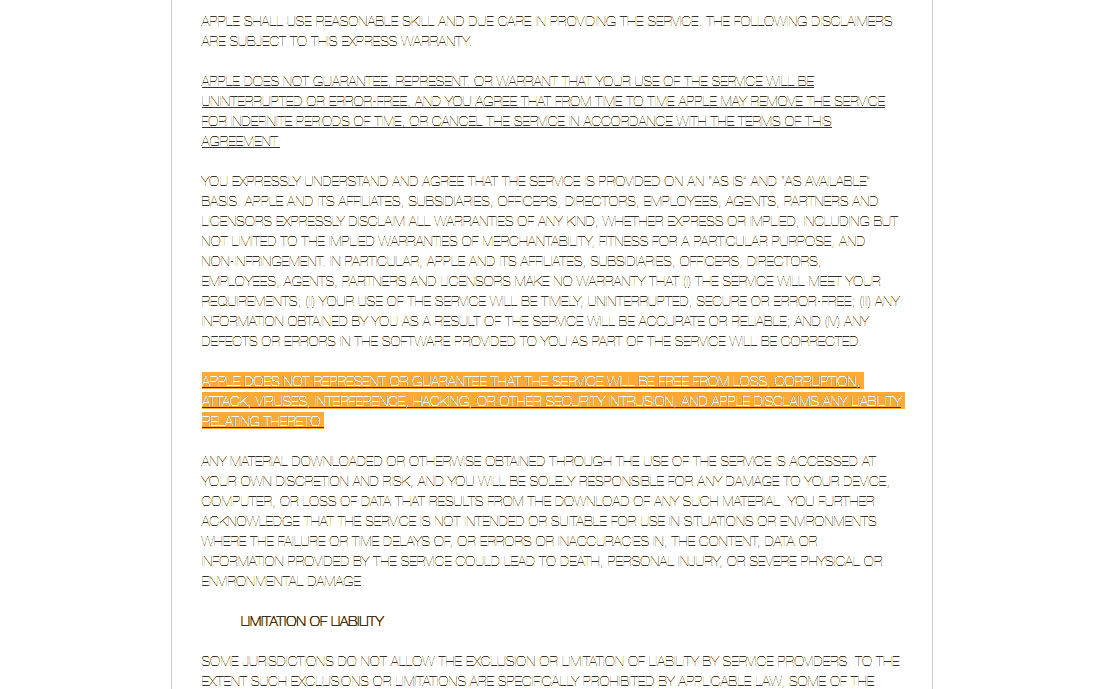Greater than 5 minutes, my friend!
The cloud, our friend and enemy
Online file conversion via Kilgray’s Language Terminal, sending huge files via WeTransfer or sharing translation memories via Dropbox: we all use online services regularly to improve our work and communication and to avoid huge costs. Indeed, most of these services are free with some limitations, made possible by use of the newest technologies and by the acceptance of some adverts. But no matter how great all these tools might be and no matter how they improve our lives, they have one major disadvantage: they are all hosted in the cloud and are thus the product of third parties, each with its own commercial interests. In this article I will list some implications of using the cloud for translation matters.
To start with, I am a huge fan of services like Dropbox, Evernote and Quip. They offer me a chance to access files easily, wherever I am and to share them with colleagues and clients. Most of the services I use within some limits so I do not need to pay for them as well. And in proportion to their acceptance by other people I am increasing my use of them – like most people.
Thanks to cloud technology and other new technologies, many features and functionalities that traditionally resided on the desktop (inasmuch you can speak about ‘traditional’ software tools), are increasingly moved to the cloud. File conversion can be done online, like OCR, file archiving and bookkeeping. At a conference last year, one of the speakers dedicated an hour to listing apps and tools that can improve the lifes of translators. Among them were To Do lists, If This Then That tools, online file repositories and file sharing services. It is true: these tools can be of great help, but they often conflict with Non-Disclosure Agreements, other confidentiallity documents and our own terms of conduct.
Part of @rainylondon's app list. I am missing #Quip 🙂 #tlconference pic.twitter.com/sunMF0uj54
— Pieter Beens (@vertaaltnu) March 27, 2015
Confidentiality conflicts in the cloud
The job of translators is in many aspects a confidential job. Whether you are a marketing translator, sworn translator or literary translator, you often deal with classified information. That can be a new marketing campaign where leakage can unveil important information to competitors, a legal document that can shed light on the share performances of a well-known brand or a manuscript of a new book from a famous writer. Whatever types of source texts we might work on, we always have to take care to avoid loss of data or disclosure of confidential information.
While documents grow bigger, mailboxes are overflowing from information, and translators increasingly work on the go; whether it be at airports, in cafes or in flexible workspaces, the need for and reliance on cloud tools increases.
But precisely these two things – the confidentiality involved in our job and the need to always have access to the document that needs to be translated – cause conflicts.
Translators and agencies alike often have entered Non-Disclosure Agreements and contracts before they actually receive work. These documents have special articles on sharing secret information. In some cases, leaking information – whether intended or accidentally – can lead to huge conflicts, giant penalties and endless proceedings. That is why all parties involved are keen to securely protect all documents involved in order to avoid conflicts and problems. At the same time, however, they share files with translators and other collaborators without any questions via cloud tools to improve collaboration. In that respect they often overlook or even ignore the consequences these tools might have. Remember the iCloud hack from 2014 and the debate around Dropbox’s scan technology. How safe a cloud service might sound or how legitimate certain technologies from cloud services are to protect content, they can have problematic consequences – particularly in the case of a hack by people who consciously want to ruin or destroy companies. In the end, providers of cloud services are protecting themselves, not their users – an understandable but problematic policy.
They therefore waive their liability for hacks and loss of data by putting conditions indicating that in their terms of service.


Even when these companies can guarantee that your confidential files won’t ever be stolen or leaked, then data acts in many countries, such as the United States, can grant government authorities far-reaching access to files and their contents for multiple reasons. That is why consumers and businesses alike are often warned to host their files on servers in the United States or in countries with which local governments have no data protection agreements. We nevertheless make use of many services and websites that host their websites in such countries because they are cheap or simply out of laziness. Once again: now the general acceptance of these services and their relative safety in the past gives us confidence and encourages us to simply register for them without checking any possible consequences. Even when companies choose not to share important files, like press releases about company takeovers, via public cloud services they often send them via servers and cloud services that are hosted in countries with poor data protection policies.
Tips to avoid conflicts
So using cloud or web services can have grave consequences, whether directly by hacks and consicous attacks, or indirectly by scanning files for service-providing purposes. In many cases the services are to good to avoid, so neglecting them can have consequences for your bottom line as well. What can you do to avoid conflicts and to protect your business and your image?
Make sure you’re covered
Not using cloud or web services is almost impossible today. Instead of being passive you might consider a proactive ‘attack forward’, letting clients sign a contract in which you indicate that you use certain cloud services and that you are not liable to possible data breaches that can occur. In some countries you can simply waive your responsibilities, while in other countries you should pass through the risks of using the services.
If that is not possible you can try to limit your accountability as much as possible to make sure that you won’t suffer severe consequences of any possible problems.
Stay safe
If the solution above does not work for you, you might consider building your own server with cloud tools. There are many open source cloud solutions nowadays, like ownCloud. If you are not a geek, you can choose a service or hosting provider with servers in countries that have strict data protection acts or ones that protect data that is stored within their national borders.
The arms of international governments are far reaching nowadays, so it is almost impossible to rule out any possible intervention. However, choosing the safe side and staying on top of possible developments in the field of data protection acts can help you avoid problems. Of course you should also have your own legal terms signed by your clients to make sure that everything is covered.
Host your own solutions
If you do not trust any cloud providers and have your website hosted in a safe country (which is a requirement for this solution) you might consider hosting your own solutions. For instance, I use my own file sharing solution to avoid WeTransfer and my own invoicing scripts (not my entire bookkeeping solution) to avoid using services like that of Proz.com. Many of these scripts can be bought on CodeCanyon with almost guaranteed ease of use (even for people who don’t have any web development knowledge) and regular technical and safety updates.
But once again, your server should be in a safe country and this solution does not prevent you from drawing good contractual terms.
Only by ensuring that everything is covered can you rest assured that even the strongest data security breach won’t touch you – even when an important press release is leaked or the newest manuscript of a famous writer emerges online before it is actually published.





Thank you for sharing this great article and good information about cloud technology. I will consider providers like ownCloud in the future. Thanks.
Pieter, great read as usual.
FYI and others: My private cloud solution is really simple and safe: CloudStation (running on a Synology NAS). This is also how I sync my machines.
For the type of projects I’m running, I found it very hard to avoid any Cloud solution. So I always check the NDA for it, and if the NDA forbids me to use a Cloud service, I explain why we’ll need it. So I basically try to get that restriction deleted from the NDA. When customers don’t want to do that, I stick to the NDA. But as the cloud is about everywhere these days, I prefer to take the opportunity to educate my customer. Often these NDA’s were written in the early days of Cloud technology, and the customer does not fully grasp the impact of the restriction these days.
Thank you Gert!
I have my own NAS as well and it’s great, but it doesn’t support cloud technology (it’s 5 years old or so). So I bought a WD Book and considered a Synology NAS. However, I’m afraid for hacks of my private network. Not sure about that …
Pieter, no system is 100% safe, but this is how I try to make it hard for hackers to access my private Cloud:
– In my router I switched on port-forwarding only to the NAS and only for HTTP, FTP and WebDAV. I only switch this on when I’m travelling 😉
– I use two step authentication on the NAS (I’m not sure this is smart, because I’m a bit worried about what would happen if I would lose my phone that generates an authentication key; I should make some time to figure that out)
– Really sensitive data (like delivered projects) are zipped (with WinRAR) with an encryption key
So I mainly use the private cloud on my internal network, and I open the gate a little bit when I’m travelling. As I never post facebook messages about being on the road (or I post them when I’m back home), I think it is pretty safe. I’m not a specialist in this field, but at least I’ve the feeling I’m making it less straightforward for hackers.
The Synology technology is really simple to use. Their support is not always great but the users share a lot of knowledge. It is a really great product. Not that expensive either.
Thanks for sharing, Pieter.
I’m interested in security options as my office is set up in a co-working space where everyone who is there can see the Wi-Fi password displayed in the main room.
Is a private cloud-based system a good solution in this situation?
I love clouds and I hope the current legal agreements we have with clients evolve to accommodate that technology. The thing about clouds: they have hundreds of people working on their security trying to improve it and make it air-tight. So when people are worried about security I always find it puzzling. Most of the time cloud is a paid services so it’s in their best interest to keep security and confidentiality at the highest level possible. So why not work with them and make your and your clients life a little bit easier?
You can’t be 100% secure, but from my experience clouds have way better security practices than some of the freelancer. Many freelancers don’t even change their email passwords regularly 🙂
So if someone is after your client, they can do all sorts of social engineering which in reality is much easier to do on a freelancer rather than a gigantic company like Dropbox with many policies and procedures in place to prevent leaks and/or attacks.